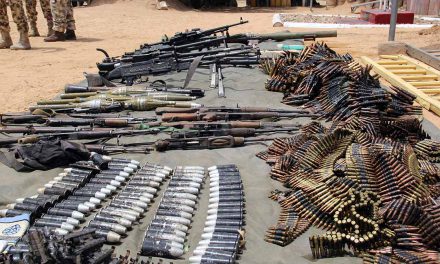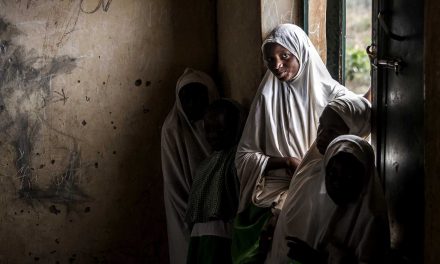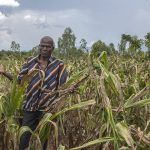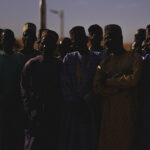For more than a decade, the people of Manyenje village, located in Malawi’s southern region district, Blantyre, have longed to have safe and clean water.
Though located near Blantyre city centre, this community is forced to use polluted water directly from the Mudi River for domestic purposes. This, despite their tireless efforts to engage responsible office bearers to provide safe, piped water. “I don’t know what we have subjected our bodies to in the past 15 or so years,” laments Group Village Head of Manyenje Michael Chikwanje, who believes the watercourse could be the most polluted river in Blantyre. “The water comes in different dark colours.”
The area, he says, is directly affected by water pollution because it relies almost entirely on the river for all its water needs, including irrigation. Manyenje and its surrounding villages have one borehole to cater for more than 360 households. “Drawing water for washing and bathing consumes lots of time,” Chikwanje says. “Women prefer to wash clothing in the river, and take their children to bathe there.”
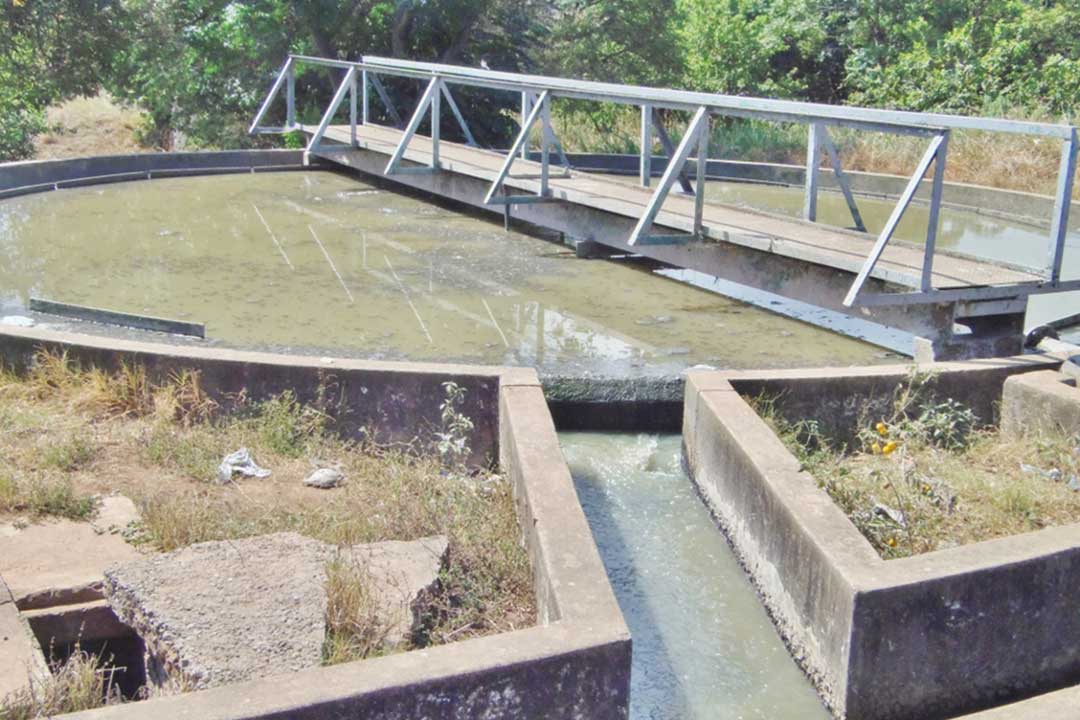
The Blantyre City Council has only managed to rehabilitate 3km of the degraded sewage system. Photo: Josephine Chinele
Manyenje village residents are feeling the direct impact of activities upstream of the Mudi and in other rivers, such as the Naperi and Nasolo that feed into it. These rivers pass through residential areas with high levels of human and manufacturing activity. Dumped refuse clogs these waterways, where large quantities of disposable diapers and plastics are clearly visible.
For Malawian mothers, especially those living in the urban areas, the ability to buy disposable diapers signals that they lead a fashionable lifestyle. But without an environmentally friendly dumping plan, disposed diapers are a major pollutant in the area, with most of them ending up in local rivers and streams. One of these rivers is the Naperi River, with its black and stinky water, its banks crammed with waste, including used diapers.
The residents of the area blame Blantyre City Council (BCC)’s inconsistent refuse collection. “As much as some people may be dumping waste into the river because they have no bins, collection schedules are also unreliable,” says Graciano Kansiyamo, chairperson for the Naperi community environmental sub-committee. He says the committee is trying to create public awareness around the issue and has made two waste pits where people dump waste in event of the BCC failing to show up for refuse collection, which is often the case.
“But much damage has already been done,” he acknowledges. “We are aware that the polluted water is used by others downstream, so we need to take care. But it’s frustrating to note that there is little or no effort from the government through the BCC to reverse this situation, or to deal with the issue of river pollution.”
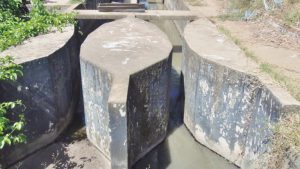
Photo: Josephine Chinele
Despite the proliferation of used diapers and domestic waste, they are just part of the problem because the rivers have also become outlets for sewage and most of Blantyre’s industrial liquid waste. Industries have connected their industrial waste outlets to the BCC sewage system, which is in a mess, and all waste pours out into nearby rivers.
BCC Public Relations Officer Deborah Luka acknowledges that the council does not collect garbage due to an inadequate vehicle fleet. “This is not, however, a licence for residents to dump diapers into rivers and streams. There is need for a change of mindset to embrace better alternatives,” she says. While it is obvious that companies continue to dispose of waste into the rivers, Luka could not give clear details on the number of companies fined in recent years.
Senior lecturer in horticulture and biotechnology at Lilongwe University of Agriculture and Natural Resources (LUANAR), Dr Wezi Mkwaila, told Africa in Fact that agriculture also suffers the consequences of river pollution in that contaminated water is used for irrigation. “This is dangerous, as most crops grown in riverbanks or irrigated with contaminated water are consumed directly, with minimal processing,” she says. “Actually, if there’s a need for immediate washing after harvesting, contaminated water may be used. This is serious on multiple levels. The crops may not thrive and if they do, they may accumulate unacceptable levels of dangerous chemicals and microbes, especially those linked to faecal matter.”
She stresses that because of the nature of food chains, these harmful chemicals accumulate in human bodies, adding that the solution, as a country, is multi-levelled, including consideration of land distribution and allocation in that if a policy is enacted to declare all rivers as protected entities, then pollution can be punishable by law, and cultivation along riverbanks outlawed. “However, in the immediate term, communities must [take the] lead in river clean ups and be vigilant, especially if effluents are being dumped into their water bodies.”
Executive Director for Malawi’s Centre for Environmental Policy and Advocacy (CEPA) Herbert Mwalukomo says it’s possible for the current state of affairs to change if the right measures are put in place. He told Africa in Fact that while the Blantyre city sewer system was very old and needed maintenance, that was no excuse for companies to be polluting the rivers. “We need to change our waste management practices,” he says. “It’s high time the laws are enforced so that companies that are polluting waste into the rivers are held responsible for cleaning up the mess caused. Although we have never had any in-depth survey, we are aware of their harmful practices. The dark waters in our rivers are also evidence of industrial waste disposal.”
The EU ambassador to Malawi, Rune Skinnebach, says as much as the fight against pollution and environmental degradation is embedded in its funded interventions in support of agriculture in Malawi, without proper management, conservation and restoration, Malawi’s agricultural sector, and the economy at large, will not grow. “Malawi is endowed with a good institutional framework, but often the challenge is the enforcement of laws,” he told Africa in Fact. “We believe uptake of good environmental practices do require important investments in civic education, coupled with more rigorous enforcement measures.”
Department of Environmental Affairs Director Tawonga Mbale-Luka insists that her department continues to do routine inspection and monitoring, and fines those (especially companies) found to be polluting the rivers. “We have fined ‘reputable’ companies before,” she says. Luka says her department is aware of the Mudi River pollution and has assisted in getting funding for BCC to rehabilitate its sewer system. “I know there is still more work to be done,” she concedes, “since government – through our department has only rehabilitated 3km of the sewer line”.
Goal six of the United Nations Sustainable Development Goals (SDGs) aims to achieve, among other targets, universal and equitable access to safe and affordable drinking water for all, improve water quality by reducing pollution, eliminating dumping and minimising the release of hazardous chemicals and materials, halving the proportion of untreated wastewater and substantially increasing recycling and safe reuse globally by 2030.
But these targets present an uphill task if Malawi’s rivers remain polluted due to lack of law enforcement. Clearly, people who are perpetually polluting the rivers do not know that this comes back to them indirectly. The people of Manyenje village, for example, are using polluted water to irrigate green maize and vegetables, which are sold to Blantyre’s residents.
Would you like to gain an understanding of your own impact on the environment? Calculate your own carbon footprint here
Josephine Chinele is multi-award-winning international journalist. She has worked as a news, features and investigative journalist for newspapers, radio and television platforms in Malawi, Tanzania and South Africa. Josephine has also been awarded several prestigious journalism fellowships in the area of HIV and AIDS, health and human rights among others. She is also a biomedical HIV prevention advocate.




